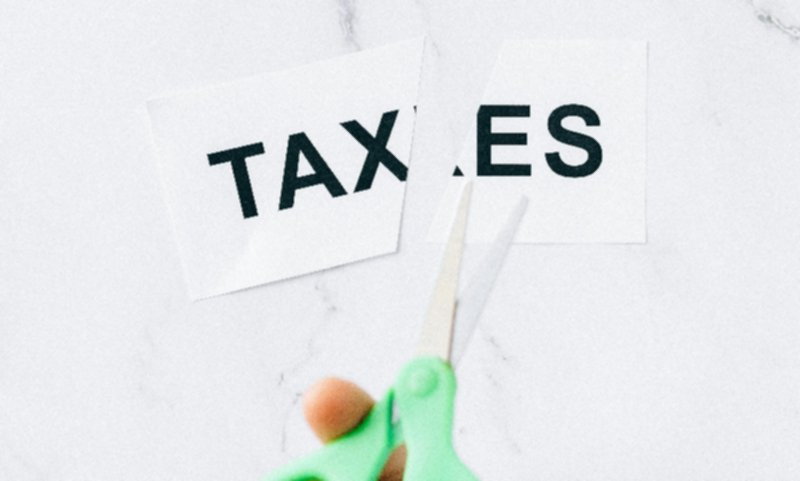How Much Cash Reserve Should a UK Small Business Have?
Calculating the Optimal Safety Net for Your Business in Uncertain Times
UK small businesses with adequate cash reserves are 67% more likely to survive economic downturns. According to recent Federation of Small Businesses data, the average UK SME holds approximately 35 days of operating expenses in reserve, but experts recommend significantly more for true financial security.
Why Cash Reserves Matter for UK Small Businesses
Cash reserves act as a financial safety net, protecting your business from unexpected challenges and providing the stability needed to seize opportunities. In the UK’s dynamic economic environment, having adequate reserves can mean the difference between weathering a storm and closing your doors.
- Weather unexpected expenses without taking on debt
- Maintain operations during seasonal fluctuations or economic downturns
- Take advantage of growth opportunities without external financing
- Reduce stress and make clearer business decisions
- Meet obligations during client payment delays
The Rule of Thumb: 3-6 Months of Operating Expenses
Most financial advisors recommend that UK small businesses maintain cash reserves equivalent to 3-6 months of fixed operating expenses. This range provides a balance between security and practical capital allocation.
| Business Type | Recommended Reserve | Key Considerations |
|---|---|---|
| Service-based businesses | 3-4 months of expenses | Lower overhead, quicker to adjust to market changes |
| Product-based businesses | 4-5 months of expenses | Inventory costs, potential for obsolescence |
| Seasonal businesses | 5-6 months of expenses | Uneven cash flow throughout the year |
| High-growth startups | 6+ months of expenses | Unpredictable growth patterns, higher burn rate |
Calculating Your Ideal Cash Reserve
Step 1: Calculate Monthly Fixed Expenses
Sum all essential monthly costs: rent, utilities, payroll, loan payments, insurance, etc.
Step 2: Identify Variable Essentials
Estimate minimum required spending on inventory, raw materials, and marketing.
Step 3: Multiply Based on Risk Profile
Multiply your total monthly essential expenses by your risk factor (3-6 months).
Monthly Fixed Expenses: £8,000 (rent, utilities, core staff)
Essential Variable Costs: £4,000 (minimum inventory, critical marketing)
Total Monthly Essentials: £12,000
Recommended Reserve (4 months): £48,000
Factors That Influence Your Ideal Reserve Amount
1 Business Model & Industry
Some industries naturally require larger cash buffers than others. Businesses with high fixed costs, seasonal fluctuations, or long sales cycles typically need more substantial reserves.
| Industry | Recommended Reserve | Reason |
|---|---|---|
| Hospitality & Retail | 5-6 months | Seasonal fluctuations, high fixed costs |
| Professional Services | 3-4 months | Lower overhead, flexible cost structure |
| Manufacturing | 4-5 months | Inventory costs, equipment maintenance |
| Construction | 5-6 months | Project-based payment delays, variable workload |
2 Economic Conditions
During uncertain economic times or industry-specific challenges, expanding your cash reserve provides crucial protection against unexpected disruptions.
- Economic recession or forecasted downturn
- Industry-specific challenges or disruptions
- Brexit-related regulatory changes affecting your sector
- Major client concentration (if one client represents >20% of revenue)
- Planned significant investments or expansions
3 Access to Alternative Funding
Businesses with quick access to credit lines or other financing may maintain slightly lower cash reserves, though this approach carries its own risks.
| Funding Access | Reserve Recommendation | Considerations |
|---|---|---|
| Established credit line | 3-4 months | Ensure credit terms are favorable and reliable |
| No established credit | 5-6 months | Building reserves is more critical without backup options |
| Quick invoice financing | 3-4 months | Factor in the cost of financing when calculating needs |
| Personal assets available | 4-5 months | Weigh risks of mixing personal and business finances |
Building Your Cash Reserve: Practical Strategies
Step 1
Set a target reserve amount
Step 2
Open a separate business savings account
Step 3
Automate regular transfers
Step 4
Allocate windfalls to reserves
Step 5
Review and adjust quarterly
- The percentage approach: Commit 5-10% of all revenue to reserves
- Windfall allocation: Direct unexpected income (tax refunds, large client payments) to reserves
- Cost savings transfer: Move money saved from efficiency improvements to reserves
- Profit-first allocation: Allocate a percentage of profits to reserves before other distributions
Where to Keep Your Business Cash Reserves
| Option | Pros | Cons | Best For |
|---|---|---|---|
| Business Savings Account | Easy access, FDIC protected | Lower interest rates | Emergency fund portion |
| Money Market Account | Higher interest, check-writing | Higher minimum balances | Medium-term reserves |
| Time Deposits | Higher interest rates | Limited access to funds | Portion not needed immediately |
| Business Premium Bonds | Potential for tax-free prizes | No interest, prizes not guaranteed | Small portion of reserves |
- Ensure your savings institution is protected by the FSCS up to £85,000
- Maintain liquidity – don’t lock up all reserves in long-term investments
- Consider splitting reserves between instant access and higher-yield accounts
- Review your reserve strategy at least quarterly
Signs Your Cash Reserves Are Too Low
- You struggle to pay bills on time when clients pay late
- You decline growth opportunities due to cash constraints
- You rely on personal funds to cover business shortfalls
- You experience constant stress about cash flow
- You can’t cover unexpected expenses without borrowing
When to Use Your Cash Reserves
| Appropriate Uses | Questionable Uses |
|---|---|
| Covering operations during unexpected downturns | Routine expenses that should be budgeted |
| Emergency repairs or critical equipment failure | Non-essential upgrades or expansions |
| Seizing unexpected opportunities with strong ROI | Funding experiments without clear potential |
| Bridge funding during client payment delays | Covering persistent operational inefficiencies |
Need Help Determining Your Ideal Cash Reserve?
Our financial advisors can help you calculate the optimal cash reserve for your specific business situation and develop a strategy to build and maintain it efficiently.
Get Financial Advice

